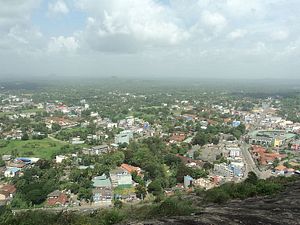Torture remains a major problem in Sri Lanka. A new report from the UN Special Rapporteur on torture and other cruel, inhuman or degrading treatment or punishment has reminded us of that. The report presents a grim picture of systematic torture and the concomitant impunity which continue to plague the island nation. The report also lays out a number of thoughtful recommendations and conclusions.
The International Truth and Justice Project (ITJP) has issued a strong press release about the report. Journalists for Democracy in Sri Lanka has also written about it. Freedom from Torture has weighed in too. The document, however, appears to be receiving little attention in the Sri Lankan press.
“What struck me was his [Juan Méndez’s] description of the collapse of the very system meant to investigate and prosecute torture in a country with a backlog of thousands of cases and more people being tortured daily. What Juan Mendez’s report shows is the huge effort it will take to tackle the systemic problems of the police, the judiciary, the security sector and what we are instead getting is box ticking – at best,” says Yasmin Sooka, ITJP’s executive director. “Singing the national anthem in Tamil isn’t going to stop the ongoing abductions and torture. It’s time the denial stops: of course, the violations continue if you don’t do anything to stop them. The obligation to prevent torture is that of the state; if they don’t tackle institutional reform and security sector reform seriously then the international community must start to put them on terms.”
Since the ouster of Mahinda Rajapaksa in a January 2015 presidential election, the international community has heaped significant praise on the new administration, an uncomfortable power-sharing alliance that’s led by President Maithripala Sirisena and Prime Minister Ranil Wickremesinghe.
Two years on, there’s no question that international actors moved far too quickly to support Colombo, relying on a carrot-heavy approach that reflected neither the realities on the ground nor the government’s true intentions regarding its own reform agenda.
Sri Lanka “should set up an independent investigative body with international support modeled on the [International Commission against Impunity in Guatemala] CICIG approach,” notes Sooka. “It must be independent of the Attorney General’s office and the police or it will fail. Start vetting public officials – as promised in [UN Human Rights Council] resolution 30/1 – you don’t need a special court to do all these things. They are already two years behind the curve.”

































